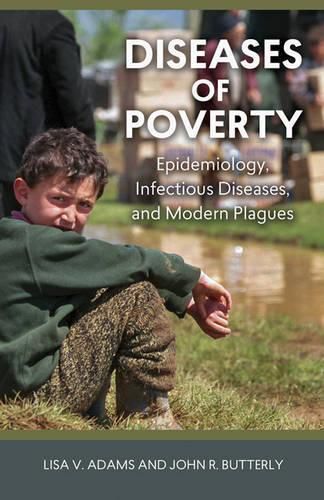Readings Newsletter
Become a Readings Member to make your shopping experience even easier.
Sign in or sign up for free!
You’re not far away from qualifying for FREE standard shipping within Australia
You’ve qualified for FREE standard shipping within Australia
The cart is loading…






Only a few decades ago, we were ready to declare victory over infectious diseases. Today, infectious diseases are responsible for significant morbidity and mortality throughout the world.
This book examines the epidemiology and social impact of past and present infectious disease epidemics in the developing and developed world. In the introduction, the authors define global health as a discipline, justify its critical importance in the modern era, and introduce the Millennium Development Goals, which have become critical targets for most of the developing world. The first half of the volume provides an epidemiological overview, exploring early and contemporary perspectives on disease and disease control. An analysis of nutrition, water, and sanitation anchors the discussion of basic human needs. Specific diseases representing both loud and silent emergencies are investigated within broader structures of ecological and biological health such as economics, education, state infrastructure, culture, and personal liberty. The authors also examine antibiotic resistance, AIDS, malaria, tuberculosis, and pandemic influenza, and offer an epilogue on diseases of affluence, which now threaten citizens of countries both rich and poor. A readable guide to specific diseases, richly contextualized in environment and geography, this book will be used by health professionals in all disciplines interested in global health and its history and as a textbook in university courses on global health.
$9.00 standard shipping within Australia
FREE standard shipping within Australia for orders over $100.00
Express & International shipping calculated at checkout
Only a few decades ago, we were ready to declare victory over infectious diseases. Today, infectious diseases are responsible for significant morbidity and mortality throughout the world.
This book examines the epidemiology and social impact of past and present infectious disease epidemics in the developing and developed world. In the introduction, the authors define global health as a discipline, justify its critical importance in the modern era, and introduce the Millennium Development Goals, which have become critical targets for most of the developing world. The first half of the volume provides an epidemiological overview, exploring early and contemporary perspectives on disease and disease control. An analysis of nutrition, water, and sanitation anchors the discussion of basic human needs. Specific diseases representing both loud and silent emergencies are investigated within broader structures of ecological and biological health such as economics, education, state infrastructure, culture, and personal liberty. The authors also examine antibiotic resistance, AIDS, malaria, tuberculosis, and pandemic influenza, and offer an epilogue on diseases of affluence, which now threaten citizens of countries both rich and poor. A readable guide to specific diseases, richly contextualized in environment and geography, this book will be used by health professionals in all disciplines interested in global health and its history and as a textbook in university courses on global health.